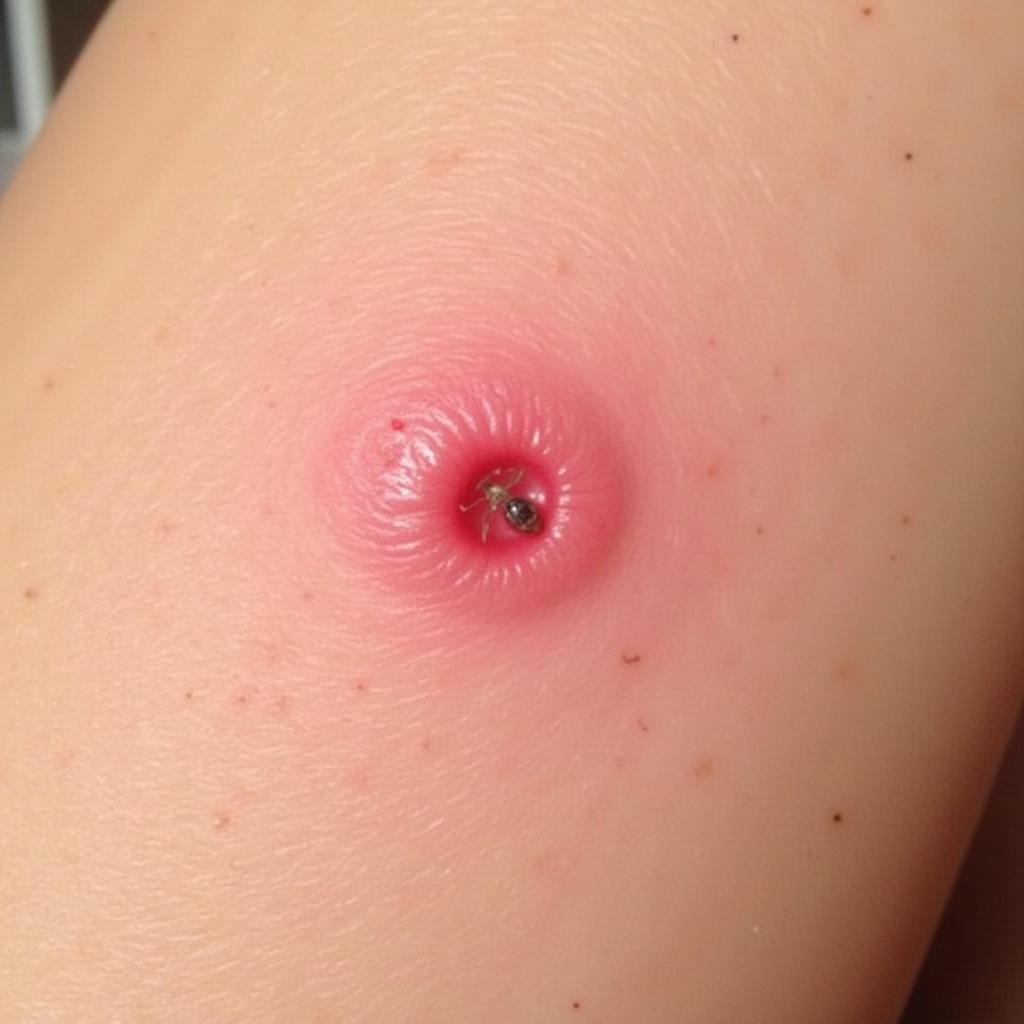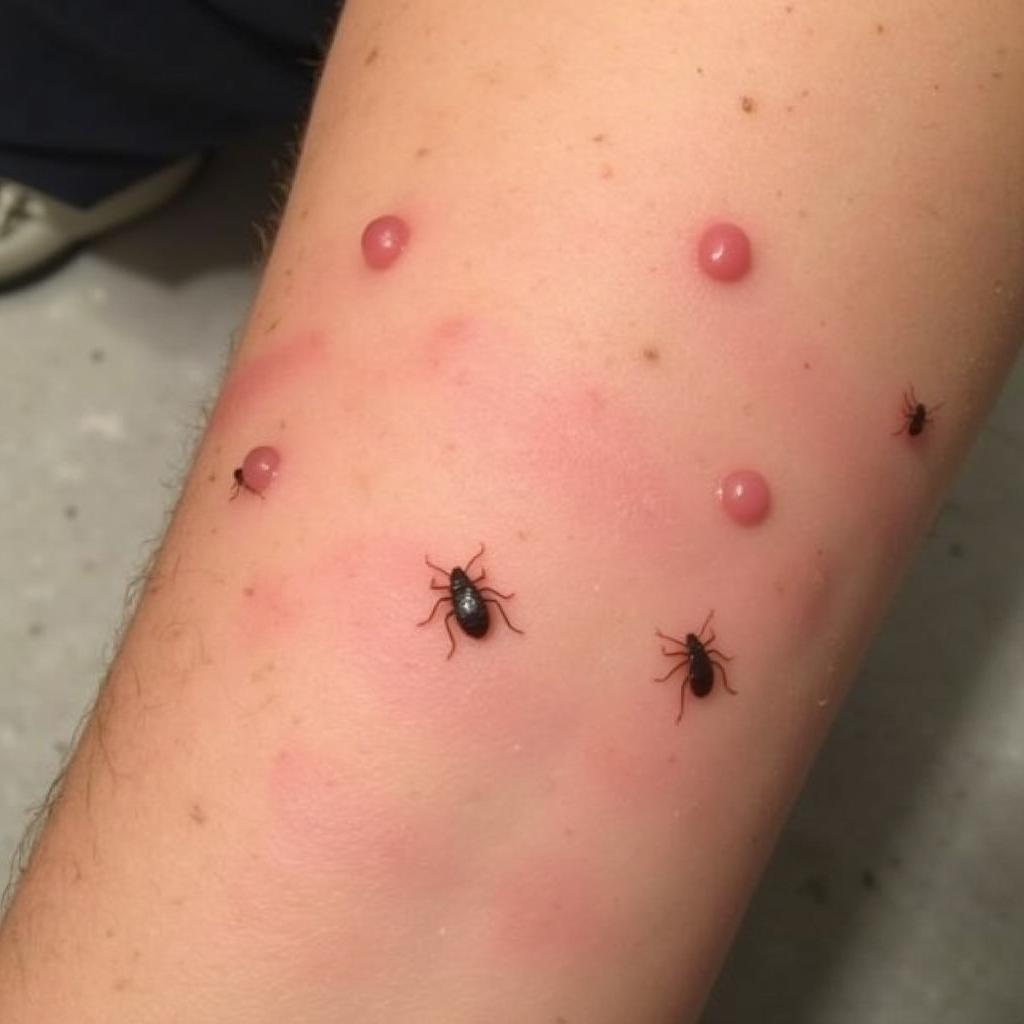Southeast Asia, a region known for its lush landscapes and vibrant culture, is also home to a diverse range of insects. While most are harmless, some can leave you with itchy, painful bites. This guide will cover common insect bites in Southeast Asia, how to identify them, and steps to manage them.
 Mosquito Bite Symptoms
Mosquito Bite Symptoms
Why Insect Bites Matter
Insect bites are more than just a nuisance. Some insects can transmit diseases like dengue fever, malaria, and Zika virus, which can have serious health implications. Knowing how to identify and treat insect bites is crucial, especially when traveling or living in Southeast Asia.
Identifying Common Culprits
While many insects bite, some are encountered more frequently in Southeast Asia. Here’s how to recognize their bites:
1. Mosquitoes: These tiny vampires are infamous for their itchy bites. Mosquito bites appear as small, red, itchy bumps on the skin.
2. Sandflies: Found in coastal areas, sandfly bites are intensely itchy and often appear in clusters. They can sometimes blister.
3. Bed Bugs: As their name suggests, these nocturnal pests feast on sleeping humans. Their bites resemble mosquito bites but often appear in lines or clusters, typically on exposed skin.
 Bed Bug Bites on Arm
Bed Bug Bites on Arm
4. Ants: While not all ants bite, some species, like fire ants, deliver painful bites that result in itchy, pus-filled blisters.
5. Spiders: Spider bites are less common but can be more serious. They usually appear as two small puncture marks and can cause pain, redness, and swelling.
Managing Insect Bites
Most insect bites can be treated at home:
- Cleanse the Bite: Wash the affected area with soap and water to prevent infection.
- Apply a Cold Compress: This can help reduce swelling and itching.
- Over-the-Counter Relief: Calamine lotion or hydrocortisone cream can alleviate itching. Oral antihistamines can also provide relief.
- Avoid Scratching: Scratching can break the skin, increasing the risk of infection.
When to Seek Medical Attention
While most insect bites are harmless, some situations warrant medical attention:
- Signs of Infection: If you notice increasing redness, swelling, warmth, pus, or red streaks spreading from the bite, see a doctor.
- Allergic Reactions: Severe allergic reactions can cause difficulty breathing, swelling of the face or throat, dizziness, or a rapid heartbeat. Seek immediate medical help.
- Suspected Disease: If you develop fever, headache, muscle pain, or other flu-like symptoms after an insect bite, especially if you’ve been in an area known for insect-borne diseases, consult a doctor immediately.
Prevention is Key
Taking steps to avoid insect bites is the best form of protection:
- Use Insect Repellent: Choose a repellent containing DEET, picaridin, or oil of lemon eucalyptus.
- Cover Up: Wear long sleeves, pants, and socks, especially during dawn and dusk when mosquitoes are most active.
- Sleep Under a Mosquito Net: This provides an extra layer of protection, particularly in areas with a high risk of malaria.
- Eliminate Breeding Grounds: Mosquitoes breed in stagnant water. Remove any standing water around your home or accommodation.
 Applying Insect Repellent
Applying Insect Repellent
Enjoy Southeast Asia Safely
Southeast Asia’s rich biodiversity is part of its charm. By being aware of the insects you may encounter and taking appropriate precautions, you can have a safe and enjoyable experience. Remember, a little prevention can go a long way in protecting yourself from unwanted bites.
FAQs
1. What is the most common insect bite in Southeast Asia?
Mosquito bites are the most common insect bite in Southeast Asia.
2. Are all spider bites dangerous?
No, not all spider bites are dangerous. While some spider bites can cause local reactions, only a few spider species in Southeast Asia pose a serious medical threat.
3. What should I do if I suspect dengue fever?
If you experience fever, headache, muscle and joint pain, and rash after an insect bite, seek medical attention immediately. These are potential symptoms of dengue fever.
Need More Information?
For further assistance or information on health and safety in Southeast Asia, please contact us:
Phone: 0369020373
Email: [email protected]
Address: Thon Ngoc Lien, Hiep Hoa, Bac Giang, Vietnam.
Our customer support team is available 24/7 to assist you.

